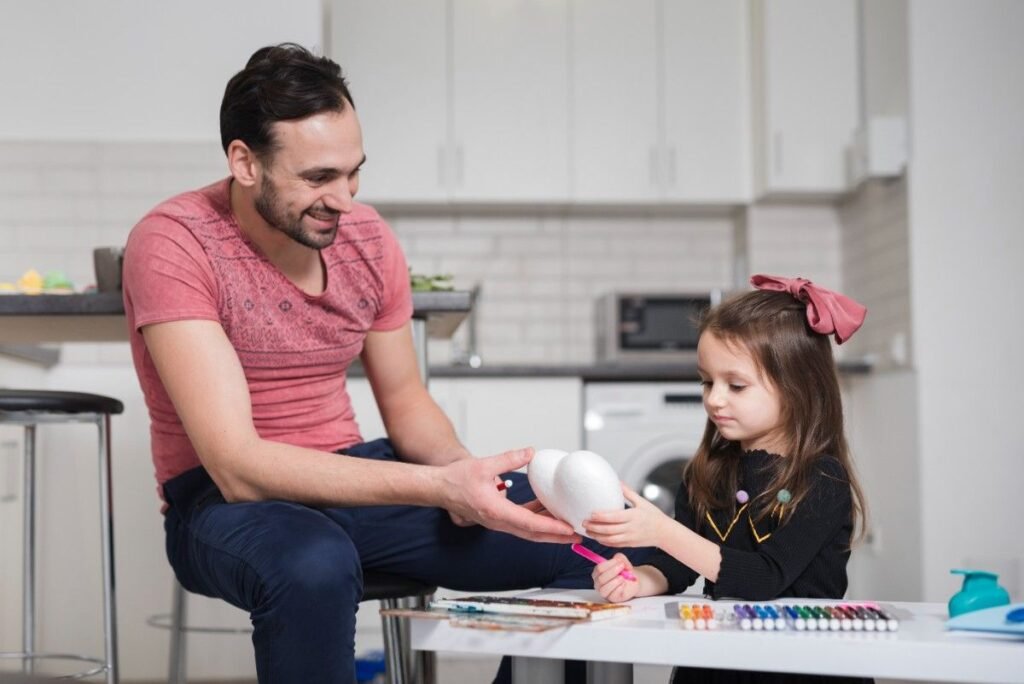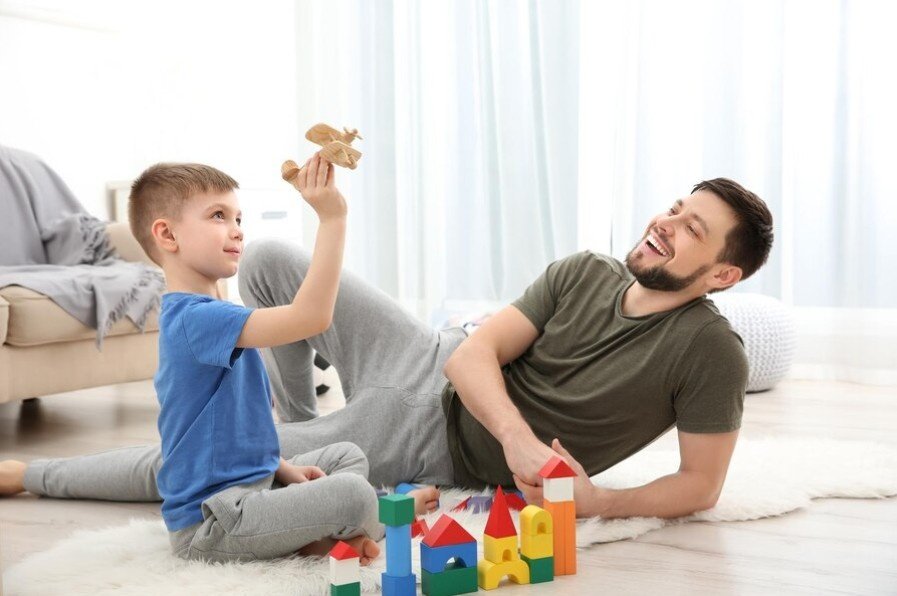Providing care for another person is one of the most selfless and impactful roles anyone can take on. Whether it’s caring for an elder, a child, or someone with a disability, a primary caregiver’s presence can shape the well-being, comfort, and quality of life of the individual in their care.
However, being a great primary caregiver requires more than just willingness. It takes patience, empathy, resilience, and a unique blend of skills that come together to ensure the person being cared for is supported in every way possible.
So, what exactly makes a great primary caregiver? In this article, we’ll explore the essential qualities that distinguish outstanding caregivers. Whether you’re considering becoming a caregiver or looking to support someone in this vital role, these traits and skills are crucial to fostering a positive caregiving experience.
1. Empathy
Empathy is one of the most important qualities for a caregiver. It allows caregivers to understand and share the feelings of the person in their care, creating a supportive and compassionate environment.
How Empathy Impacts Care
When a caregiver can empathize with another’s struggles, they can provide better emotional support. Empathy helps caregivers connect with the person they’re caring for, recognizing their frustrations, fears, or discomforts, which in turn enables them to respond with greater sensitivity.
Tips for Developing Empathy
- Active Listening: Spend time listening to the person’s feelings and concerns without interrupting.
- Mindfulness: Practicing mindfulness can help caregivers stay present, allowing them to be fully engaged with the person in their care.
- Seeking Understanding: Trying to understand a person’s perspective, especially during challenging moments, fosters empathy and builds trust.
2. Patience
Caring for another person can often be a demanding, slow process that requires patience. This is especially true when helping individuals with mobility limitations, memory loss, or health issues.
The Role of Patience in Daily Care
Patience allows a caregiver to assist without becoming frustrated or irritated, even when tasks take longer than expected or need to be repeated. A great caregiver recognizes that everyone has unique needs and respects each person’s pace.
Building Patience
- Take Deep Breaths: When things become challenging, taking a moment to breathe can help maintain patience.
- Remember the Purpose: Reflecting on why they chose to become a caregiver can help caregivers stay focused on the bigger picture.
- Practice Self-Care: Caregivers often experience burnout, which can impact their patience. Regular self-care is essential to maintaining emotional balance.

3. Communication Skills
Good communication skills are essential for any caregiver, as they help convey information, provide comfort, and express support. A caregiver’s ability to communicate clearly and kindly can significantly impact the quality of care they provide.
Verbal and Non-Verbal Communication
- Clear Instructions: Whether it’s explaining a new routine or giving medication instructions, clear communication ensures that the person in care feels informed and reassured.
- Non-Verbal Cues: Facial expressions, body language, and tone of voice often convey as much as words. A great caregiver uses positive non-verbal cues to create a comforting presence.
Tips for Effective Communication
- Use Simple Language: For those with cognitive limitations, clear and straightforward language is essential.
- Practice Patience: Allow extra time for responses, especially when communicating with elderly individuals or those with speech impairments.
- Encourage Open Dialogue: Encourage the individual to express their feelings and preferences, ensuring that they feel involved in their care.
4. Reliability and Trustworthiness
A great primary caregiver must be dependable and trustworthy, providing a strong foundation for a sense of safety and stability. This is especially important in caregiving situations where the person receiving care is highly dependent on the caregiver for daily needs.
Why Reliability Matters
The person in care needs to know that they can rely on the caregiver to show up consistently and follow through with their commitments. Unreliable caregivers create feelings of insecurity, which can lead to stress and a decrease in the well-being of the individual in their care.
How to Cultivate Trust
- Be Consistent: Establish and adhere to a daily routine as much as possible.
- Follow Through: If a caregiver commits to something, following through strengthens trust.
- Maintain Transparency: Being honest and open about schedules and changes helps build a trusting relationship.
5. Adaptability
A caregiver’s day rarely goes exactly as planned. Emergencies, changes in routines, and the evolving needs of the individual in care all require a level of flexibility and adaptability.
Why Adaptability is Essential
The needs of the person in care can shift rapidly, sometimes without warning. A great caregiver is prepared to adapt and adjust to these changes with a positive and calm approach, which helps avoid unnecessary stress for both themselves and the person they’re caring for.
Building Adaptability
- Stay Calm Under Pressure: Taking things one step at a time can help in unexpected situations.
- Stay Informed: Learning about potential health developments or symptoms can prepare caregivers for possible changes.
- Embrace Learning: Being open to learning new techniques or information can enhance a caregiver’s ability to adapt.

6. Physical Strength and Stamina
Caregiving can be physically demanding, especially if it involves helping with mobility or performing daily hygiene tasks. Physical strength and stamina are crucial for ensuring that a caregiver can meet these demands without harming themselves or the person they’re helping.
Physical Demands in Caregiving
Tasks like lifting, transferring, and assisting with mobility require a degree of physical fitness. A great caregiver maintains their strength and stamina to prevent injury and to provide safe, effective support.
Tips for Building Strength and Stamina
- Exercise Regularly: Strength-training exercises can be beneficial for lifting and assisting others.
- Use Proper Techniques: Learning proper lifting techniques can reduce the risk of injury.
- Take Breaks: Regular breaks are essential for preventing fatigue and maintaining energy levels.
7. Observant and Detail-Oriented
A great caregiver is observant, noticing small changes in the individual’s mood, behavior, or physical condition. Being detail-oriented helps caregivers catch early signs of potential issues, allowing for timely intervention and better care.
The Importance of Observation
Many health conditions can progress gradually, with subtle changes that might go unnoticed. Caregivers who are attentive to detail can catch these small changes, which can be essential for maintaining the health and comfort of the person they’re caring for.
How to Improve Observation Skills
- Keep a Daily Log: Recording daily observations can help identify patterns and changes over time.
- Stay Attentive: Even during routine tasks, staying present and attentive can reveal important information.
- Ask Questions: Regularly checking in with the individual about how they feel helps caregivers notice changes they might otherwise miss.
8. Strong Problem-Solving Skills
Caregiving presents a wide variety of challenges, from scheduling issues to unexpected health needs. Strong problem-solving skills allow caregivers to navigate these difficulties effectively, finding solutions that support the well-being of the individual in their care.
Everyday Problem-Solving
For instance, if an elderly person is struggling with mobility, a caregiver may need to come up with creative ways to rearrange furniture for easier access. Or, they may need to troubleshoot communication barriers if someone is non-verbal.
Tips for Effective Problem-Solving
- Think Creatively: Sometimes, thinking outside the box provides the best solutions.
- Stay Calm: Keeping a level head during challenging situations allows for clearer thinking.
- Seek Support: Reaching out to other caregivers or healthcare professionals can offer new perspectives on tough issues.
9. Emotional Resilience
Caregiving can be emotionally draining, and without resilience, caregivers may experience burnout. Emotional resilience is the ability to manage stress, cope with challenges, and maintain a positive outlook, even during difficult times.
The Importance of Emotional Resilience
A resilient caregiver is more likely to stay healthy and maintain a high standard of care. They can handle setbacks without becoming overwhelmed, allowing them to provide consistent, compassionate support.
Building Resilience
- Practice Self-Care: Regular breaks, exercise, and relaxation can help reduce caregiver stress.
- Seek Support: Support groups, therapy, or speaking with loved ones can offer valuable emotional relief.
- Set Boundaries: Setting boundaries with caregiving hours or tasks helps prevent emotional exhaustion.

10. Dedication and Commitment
Ultimately, the best primary caregivers are deeply committed to their role, showing a dedication that transcends the daily challenges and stresses of caregiving. Their commitment is reflected in the quality of care they provide, creating a safe and supportive environment for the individual in their care.
Why Dedication Matters
When caregivers are genuinely committed, they’re more likely to go the extra mile, learn new skills, and remain compassionate even during tough days. Dedication fosters a bond of trust and security between caregiver and individual, which is invaluable in the caregiving relationship.
Concluding Words
Being a great primary caregiver is a multifaceted role that combines empathy, patience, physical strength, adaptability, and emotional resilience. Each of these qualities contributes to a caregiving approach that meets both the physical and emotional needs of the individual, providing them with dignity, comfort, and respect.

